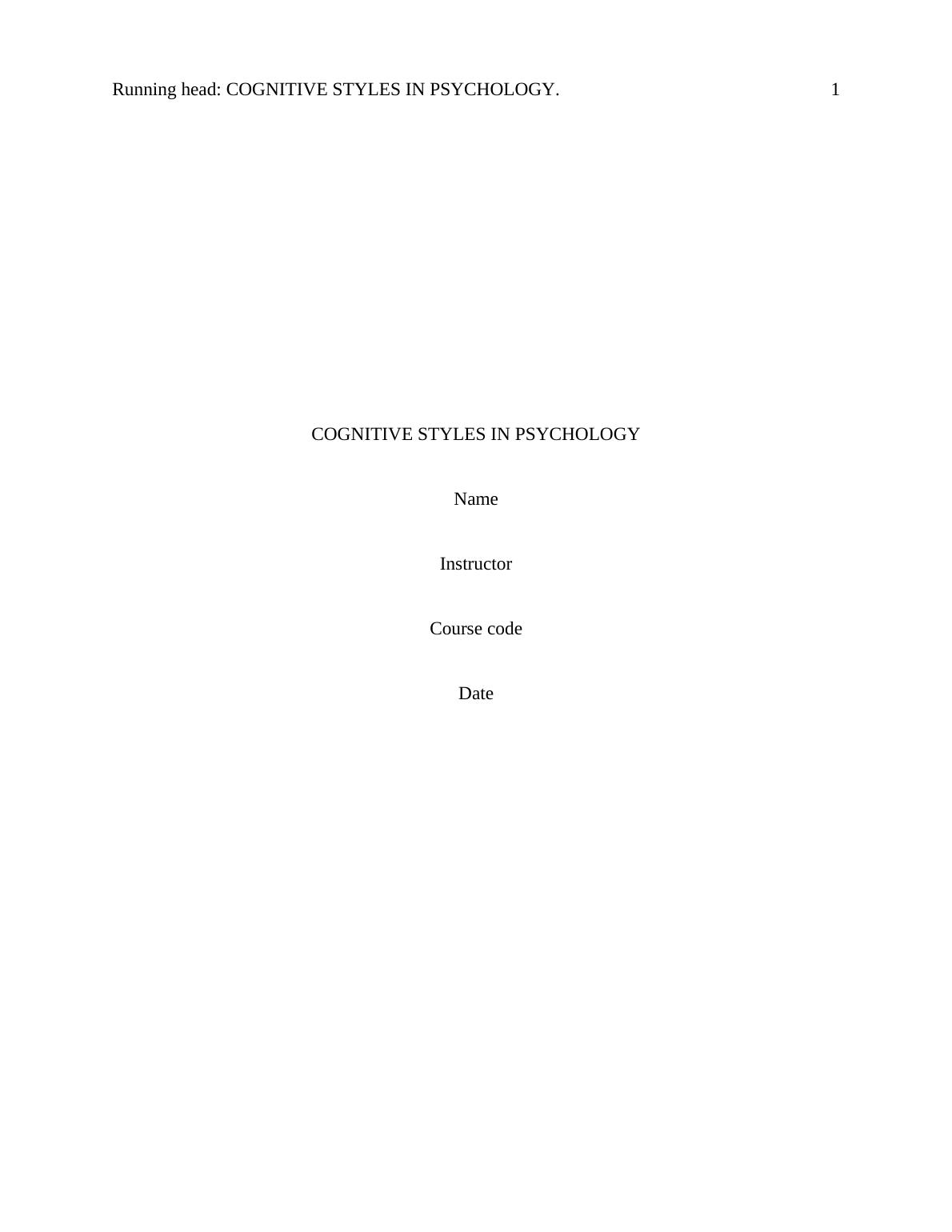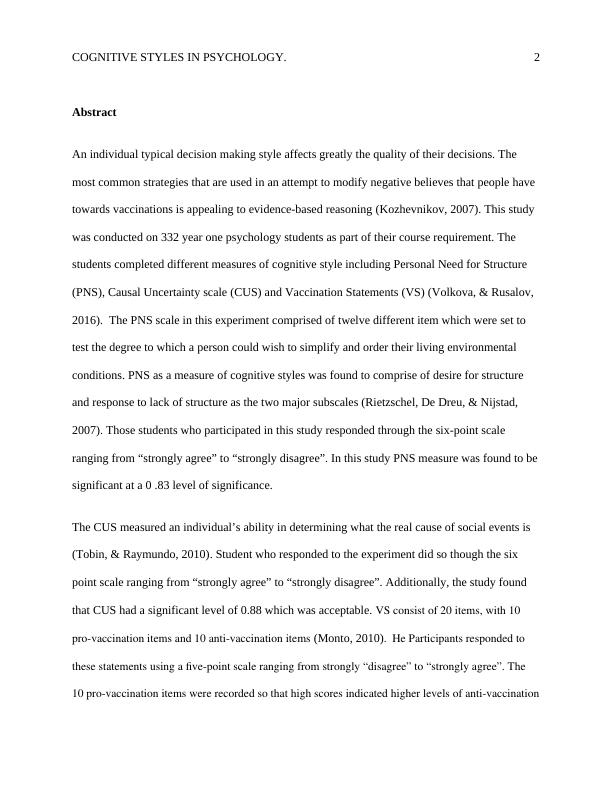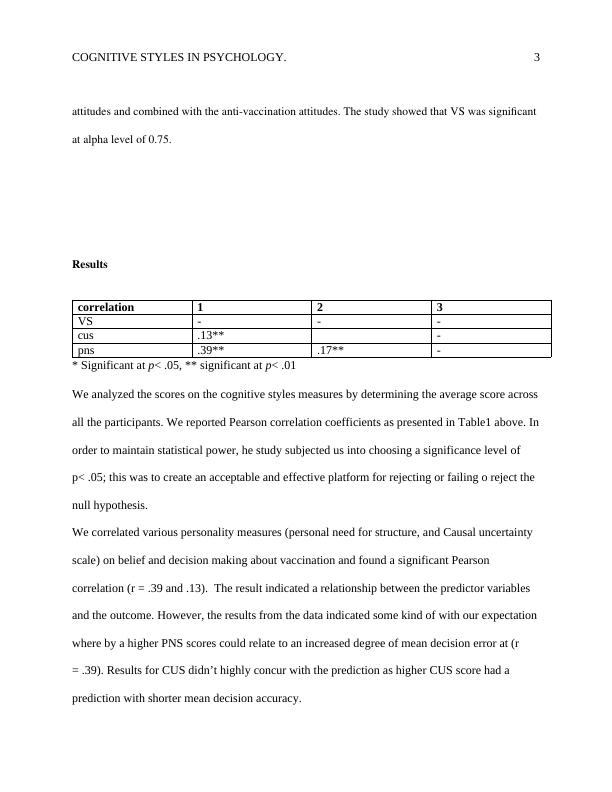Cognitive Styles in Psychology: Decision Making and Vaccination Beliefs
The Effects Of The Cognitive Styles Of Personal Need For Structure (PNS) And Causal Uncertainty On Beliefs And Decisions About Vaccinations. A Psychology lab report comparing the belief of health care and vaccinations in people in hospitals and local people in the United States.
7 Pages1170 Words450 Views
Added on 2023-06-03
About This Document
This study explores the relationship between cognitive styles and decision making about vaccinations. The study found a significant correlation between personal need for structure and causal uncertainty scale on belief and decision making about vaccination.
Cognitive Styles in Psychology: Decision Making and Vaccination Beliefs
The Effects Of The Cognitive Styles Of Personal Need For Structure (PNS) And Causal Uncertainty On Beliefs And Decisions About Vaccinations. A Psychology lab report comparing the belief of health care and vaccinations in people in hospitals and local people in the United States.
Added on 2023-06-03
ShareRelated Documents
End of preview
Want to access all the pages? Upload your documents or become a member.
Website Users and Internal Reliability of Responses (Doc)
|20
|3690
|104



